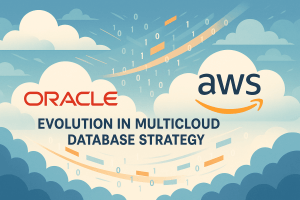Hortonworks plans to go public in 2015 and its S-1 filing, revealed to the world yesterday, says a lot about the state of the Hadoop market generally and, obviously, Hortonworks specifically.
First, a mea culpa. In Wikibon’s latest Big Data market forecast, my colleagues and I provided our estimate for Hortonworks’ 2013 revenue (along with revenue estimates of all the other players in the market … more on that in a moment.) Well, we overshot the mark.
We estimated Hortonworks did $55 million in revenue in calendar year 2013. In reality, according to the S-1, Hortonworks did closer to $20 million in 2013 revenue. We don’t have the precise figure because the company didn’t report its revenue by full calendar year. What the S-1 reveals is that Hortonworks did close to $16 million in revenue in the first nine months of 2013. If we extend that run-rate through the end of 2013, we’re talking between $20 million and $25 million in revenue for the year.
Now, if you include deferred revenue, total gross billing for the first nine months of 2013 was $24 million. Extend that to the full year 2013 and gross billings – revenue plus deferred revenue – was between $30 and $35 million. Looking at 2014, Hortonworks generated nearly $34 million in revenue through September, putting it on pace to hit $45 million plus for the full year. But this revenue isn’t coming cheap. The company’s net-loss through September was $87 million.
Our estimate did not include deferred revenue, so we overestimated by more than a factor of two. In coming to our estimate, I think that we did not give enough weight to one very important factor: the state of enterprise maturity relative to Hadoop. Hortonworks’ support subscription only becomes attractive to enterprise practitioners once they are ready to move to production Hadoop deployments. And, based on our recent adoption survey, only 30% of Big Data early adopters – just early adopters – are at that point today. When you consider the wider market, the percentage of enterprises using Hadoop in production is in the single digits.
As I’ve said in the past, Hortonworks is playing the long-game. It’s built into the business model. The product is designed to support enterprise production deployments and there just aren’t that many of those around today. And it’s banking its differentiation on its Hadoop expertise, its commitment to “pure” open source Apache Hadoop, and its partnerships with other players in the data management market. The last point is critical for Hortonworks. It needs its strategic reseller partners – namely Microsoft, Teradata and SAP – to really kick it into high gear. Based on the S-1, that clearly hasn’t happened yet.

But Hortonworks has a number of factors in its favor as well. First, the company’s strategy has always been to position itself to capitalize when Hadoop crosses the chasm, to use Geoffrey Moore’s term, from early adopters to mainstream adopters. I believe it is still positioned to do that and expect revenue to ramp up considerably over the coming twelve to eighteen months. Second, Hortonworks’ laser-like focus on Apache Hadoop both reassures and emboldens its most important channel – data warehouse reseller partners who are more threatened by the likes of Cloudera and MapR (recent partnerships announcements not withstanding.) And third, many enterprise practitioners will gravitate to Hortonworks because of its efforts on integrating with existing data management technology in order to make Hadoop adoption as seamless as possible.
Our research premise at Wikibon is that Big Data is one of the definitive new sources of competitive advantage across industries (along with cloud services and software-led infrastructure.) We believe enterprises are frustrated with traditional data management technologies and are looking to new approaches, including Hadoop, to provide more affordable, flexible and scalable ways to gain insight from the avalanche of data overwhelming corporate data centers. This bodes well for the Big Data market and Hortonworks’ prospects.
One last point. My colleagues and I are already reviewing our Big Data market forecast referenced above and plan to make adjustments to account for the data revealed in Hortonworks’ S-1. We need to do some more detailed analysis, but I do believe our forecast for the Hadoop segment of the Big Data market will change. However, the Hadoop segment makes up less than three percent of the overall Big Data market, so I do not believe it will have a material impact on our forecast for the larger Big Data market, which we expect to reach $50 billion by 2017. Stay tuned.


